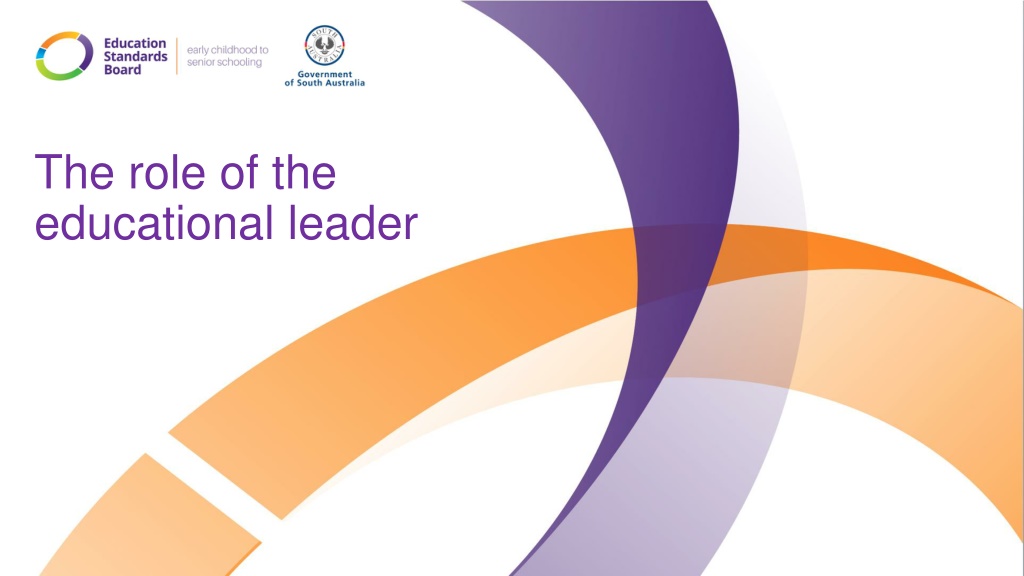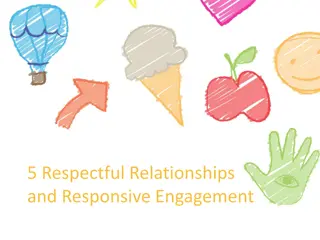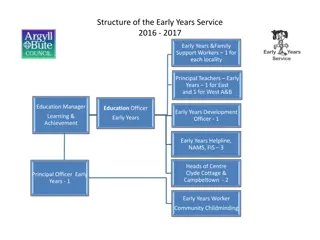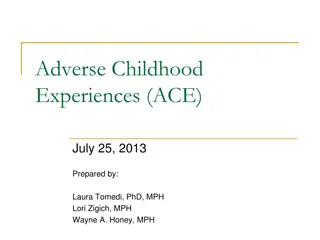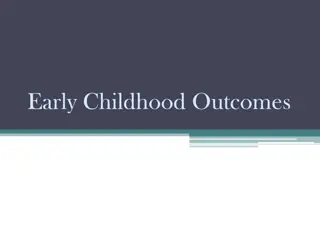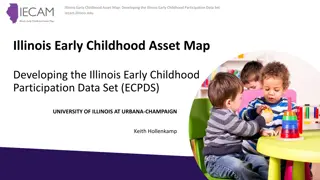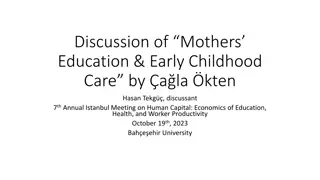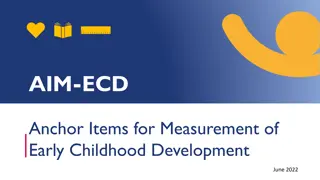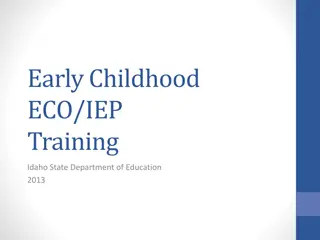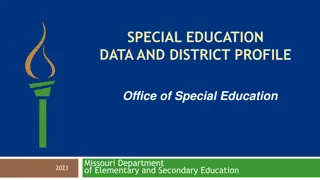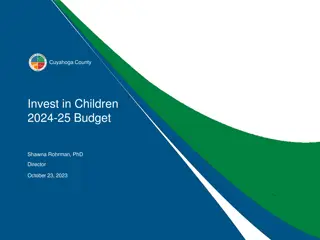The Role of the Educational Leader in Early Childhood Education
In early childhood education, the educational leader plays a crucial role in leading the development and implementation of educational programs. Studies show that effective leadership positively impacts the quality of the workplace, education provided, and outcomes for children. The selection of an educational leader is based on qualifications and experience, with key attributes including knowledge of learning theories, curriculum approaches, access to research, and personal qualities like coaching and mentoring. Supporting the educational leader is essential for achieving quality outcomes, and creating a vision for children's learning is a key aspect of their role.
Download Presentation

Please find below an Image/Link to download the presentation.
The content on the website is provided AS IS for your information and personal use only. It may not be sold, licensed, or shared on other websites without obtaining consent from the author. Download presentation by click this link. If you encounter any issues during the download, it is possible that the publisher has removed the file from their server.
E N D
Presentation Transcript
The role of the educational leader
National Regulations The approved provider of an education and care service must designate, in writing, a suitably qualified and experienced educator, co-ordinator or other individual as educational leader at the service to lead the development and implementation of educational programs in the service. (Education and Care Services National Regulations, Part 4.4, Division 1, 118 Educational Leader)
Why an educational leader? Studies show that leadership can positively impact on the quality of the centre as a workplace, the quality of education provided and the developmental outcomes achieved by children over time (Waniganayake et al., 2017; The Educational Leader Resource, 2019, p. 8) The thinking behind [the] focus on leadership is guided by research demonstrating the impact of educational leadership on outcomes for children (Cheeseman, 2012, p. 1)
Selecting the educational leader The Regulations do not specify a minimum qualification or the number of hours the educational leader should work, or whether this person must work directly with children. The approved provider/nominated supervisor should select the person most suited for this role in the service after considering the suitability of qualifications and experience of educators in the service.
Attributes of an educational leader Knowledge of theories of learning and development Knowledge of curriculum approaches and the strengths Access to current research about curriculum A desire to guide others in reflecting on their practice Knowledge of individual children and learning styles Personal qualities, including a willingness to listen as well as coach, mentor and reflect alongside their team. (Cheeseman, 2012, p.2)
Supporting the educational leader For the educational leader to be successful in generating quality outcomes, they need to be supported by the approved provider. Consider what the outcomes of this role might look like in terms of quality improvement in programs and practice.
Creating a vision for childrens learning A key aspect of the role of educational leader is to lead others in the development of an inspirational vision for children s learning and curriculum. (Cheeseman, 2012, p. 3)
Its more than checking folders Mentoring Discussing routines and how to make them more effective Leading and participating in reflective discussions about practice and frameworks Assisting educators to make connections in the community, including with diverse cultures and Aboriginal or Torres Strait Elders or their representatives Observing children and educator interactions in order to make suggestions about possible improvements Working in partnership with other organisations (Guide to the NQS, 2018, pp. 304-305) Assisting in the documentation of children s learning Talking with parents about the educational program
During an assessment and rating visit The educational leader: talks with the authorised officer(s) about the vision for curriculum in the service describes the strategies used to promote continuous improvement in relation to the program explains how the service is working to ensure the best learning outcomes for children provides other relevant information about the curriculum provided in the service e.g. leading educators in the assessment and planning cycle.
Developing a shared approach The role of the educational leader will vary from setting to setting according to the context and the needs and desires of the setting. A strong vision, which guides pedagogical decisions, and a shared approach about how to achieve the best learning outcomes for children will enable the educational leader to effectively unite a team of educators to work towards a consistent approach to curriculum.
Best learning outcomes for children Ultimately, the role of the educational leader is to motivate other educators to achieve the very best learning outcomes for young children.
Thank you for watching. If you have any questions about this topic, please email esb.earlychildhoodservices@sa.gov.au and an authorised officer will get back to you.
